
Despite well-publicised efforts to introduce more people of all backgrounds to the rewards of the outdoors, the outdoor industry itself still conspicuously lacks diversity. The sector has a big problem, according to Pammy Johal, who has been campaigning on this issue for decades.
According to Mountain Training, in the last 10 years just 453 out of more than 16,000 people to have gained one or more of their qualifications are recorded as being from a non-White background - a mere 2.8%. Recent research into the Mountain Leader qualification found that non-White-European candidates are both less likely to get to assessment and also less likely to pass their first assessment. The causes of this are not clear and will require further research, they say.
"To date our actions have had a limited impact on the ethnic diversity of our candidates" they admit.
"We want to encourage more people of colour to get involved in hill walking and climbing. We want people of colour to view our skills courses and qualifications as options available to them. We want to learn more about how racism prevents people from engaging in our schemes so that we can work towards changing the status quo..."
Why is the outdoor world still run by white people?
Anecdotally, a similar lack of representation can be found across the outdoor sector.
Founder of Backbone, an organisation set up to 'celebrate diversity through adventure', Pammy Johal has been working for many years to address the lack of diversity in the outdoors.
While Pammy welcomes the prominence latterly being placed on increasing participation in the outdoors among people of all backgrounds, and the rise of community groups working to get more people out into the countryside, she believes that there remains a big problem with representation in the industry itself, whether that's among outdoor education providers, outdoor brands, governing bodies or other big organisations.
Put simply, the outdoor world is still run by white people, she says.
In a symposium this year, Changing Landscapes - Actioning Change, Backbone will bring together outdoor education providers and BAME representatives to work out a strategy for change across the sector.
We asked her to tell us more.
Pammy Johal of Backbone writes:
I'm Pammy Johal, an outdoor education practitioner of 40+ years. I'm not here to tell you another story of an Asian woman and how I got into mountaineering and shout about my love of the outdoors (you can find out more about my journey and many others on our website).
I'm here to shout my frustration and disappointment that we are still having a "conversation" about diversity in the outdoors. I was on BBC Countryfile in 2000 which also featured Benjamin Zephaniah, and again in 2010 on the same programme, and this last decade on multiple media platforms, shouting about the lack of Black, Asian & Minority Ethnic (BAME) representation in the outdoor world, and saying that what is needed are more BAME role models. Indeed, Backbone have been committed to training and developing BAME community role models for decades.
Have a good hard look at your outdoor world and ask yourself are we really open to everyone in society?
We have definitely seen an increase in BAME members enjoying nature and more recently setting up social groups. The hills belong to us all, and from my experience there is no shortage of BAME members of society wanting to access and enjoy the great outdoors. So that is not the issue. It is happening, thanks to those new vibrant BAME groups out there, and it's fantastic!
The big issue, I believe, is internal to our industry. Why else after 40 years of us shouting about this issue is the outdoor world still run by white people? Why is there still a lack of BAME representation in organisations, particularly in employment and at board/senior level? My opinion is that the outdoor world has allowed unethical behaviours and attitudes to go unchallenged for too long. In some cases this has become an accepted way of being.
I am a qualified and experienced Asian woman outdoor education practitioner of over 40 years. I deliberately use the words "qualified and experienced" as they are credentials that are highly regarded in the outdoor professional community. However my story will tell you that those credentials mean very little when you are visually different. I have observed, heard first hand and personally had and continue to have many disturbing incidents (read about some of them here) that tell me we have a serious racial issue in our industry. This was the very reason I set up Backbone, a safe space to share commonalities and celebrate uniqueness.
There are 'gatekeepers' of opportunities to the outdoor world, opportunities to explore the great outdoors and opportunities for a career in the industry. We have given Governing Body organisations and Clubs, Associations etc the power to choose who joins this world. There are organisations in our industry that have chosen to continue to do what they do, which is provide opportunities to those that look and think like they do, and as such are discrimanatory in their behaviours, attitudes and practices. So have a good hard look at your outdoor world and ask yourself are we really open to everyone in society? My experience, observations and conversations with BAME outdoor practitioners and sector representatives tells me that as a sector as a whole, we are not.
This is a process of change, not a static moment
Backbone, a leading BAME outdoor organisation, has and continues to experience unethical practices where organisations have taken advantage of our generosity. Is this because we are BAME?
- To tick the diversity box - which is now a legal requirement.
- A token presence at Board meetings so their "Diversity" conversation with an expert is logged.
- To access funding. We have written proposals, funding has been successful and yet we were offered only a proportion of the funds allocated.
- Plagiarism. Our work has been re-branded or just taken and delivered in-house.
- An expectation that we offer our consultation services for free. Naively we did.
I could go on…
So what do we do with all this? Right now this is a hot topic, but I've been watching this on repeat for over 40 years. I have had enough of shouting about it in articles like this, conversations, webinars, board room D&I training and research. This has been the industry's excuse for a non-action approach. Stop this cycle of inactivity, use resources to action change instead of more research to tell us what is staring at us in the face - the sector is white. How can we change this?
Well we at Backbone are going to make our last stab at this with full gusto, and challenge the sector at its core. Our industry needs to wake up and change the way we operate, make a full review followed by action. We are joining forces with our long-term partners Cairngorms National Park Authority, Loch Lomond & the Trossachs National Park Authority and Nature Scot, and have launched a Symposium: Changing Landscapes - Actioning Change.
Unlike any other this is a process of change, not a static moment. We are bringing together BAME members and Outdoor Organisations to formulate an action-based solution holding each other to account, and based on reality rather than assumptions or perceptions. We are hopeful, the energy around this is incredibly positive with over 50 Outdoor Organisations and over 45 BAME members currently signed up all wanting something different… Watch this space!
If change doesn't happen soon then we can longer call ourselves a 'Service Industry'.
There is still time to sign up: contact [email protected]
- REVIEW: Rab Nitron 25L Pack 22 Aug
- INTERVIEW: James Gibson on the Martin Moran Round Record 18 Aug
- REVIEW: Montane Terra and Jetstream Shorts 5 Aug
- REVIEW: Rab Downpour Trail Lite and Phantom - ultralight shells for runners and backpackers 29 Jul
- REVIEW: Upland by Ian Crofton 30 Jun
- REVIEW: Rab Trail Tee 23 Jun
- REVIEW: Lorpen T3 Trail Running Eco Socks 10 Jun
- REVIEW: Sea to Summit Airlite Towel 30 May
- REVIEW: Primus Ulti Stove System - Finally, a rival to the Reactor? 12 May
- REVIEW: Black Diamond Pursuit Carbon Z Poles 29 Apr











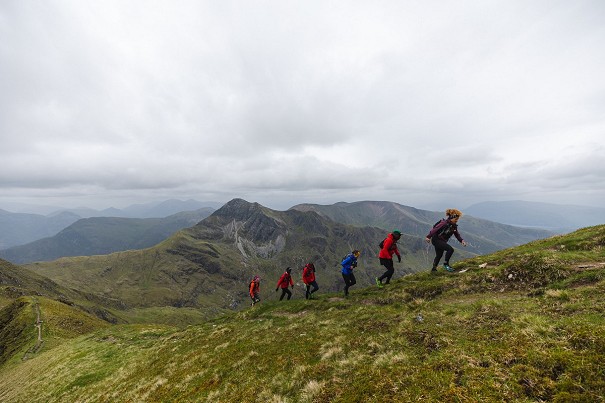
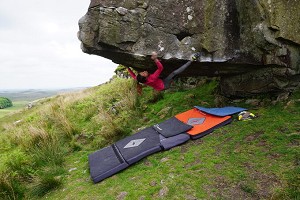
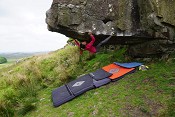
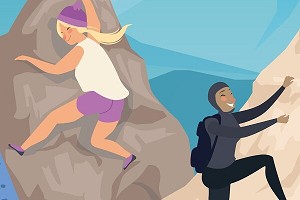

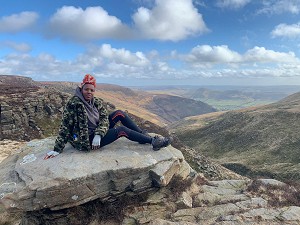
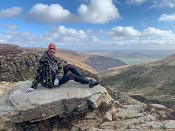
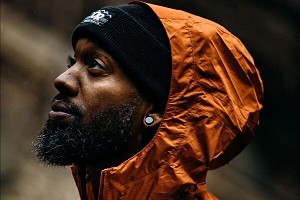

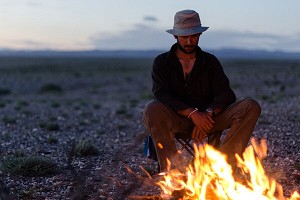
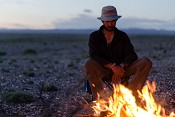
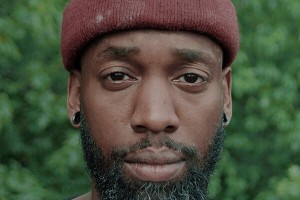
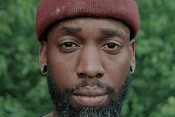
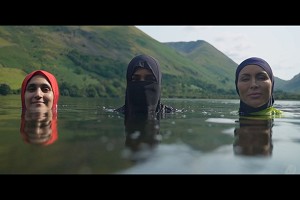
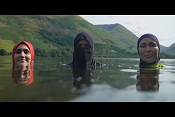
Comments
I’m finding this series of articles really interesting, thanks. It’s great to hear the perspectives of people working from various different angles to effect change.
The general response from the forums has been uncomfortable to witness though. Sadly that has probably been as illuminating as the articles themselves.
I'm not sure the response you're referring to has anything to do with a response to the merits of diversity as such, but rather more to do with the inferences drawn and methodology employed in promoting it.
In a fair society, shouldn't large scale random samples simply reflect the population distribution of irrelevant variables, with a reasonable degree of error (based on sample size from population size). If a parametric analysis is conducted, some parameters can't be supported as having any effect.
Given an arbitrary allocation of categories, some will capture causal effects and some won't. I can't see why or how race, for example has any influence per se. I can imagine that income, location, peer group, physiology, and personal preferences will dominate.
Although we haven't got 2021 UK census data yet (and Scotland has been postponed further I think), if we are trying to assess the representation in a group of activities of a multi-faceted minority comprising 10% of "society", shouldn't we be looking to see about a 1 in 10 representation if that 10% is uniformly distributed to begin with? (Which, historically, it isn't.)
I started climbing for example tin Glasgow University's GUM club in the late '70s, and Glasgow then had a gloriously high Asian population. Maybe that's why I fail to see the 'racism' accusation that pervades the diversity discussions. There's more (and less) to it than that.
Yep that’s pretty much the response to these authors that I was thinking of.
UKC: “Well that’s not my experience so I don’t believe you.”
If your issue is with methodology I’m struggling to see the value in your imaginary statistical analysis with imaginary results as an alternative to the author’s actual experiences. Anecdote is far from gold standard research, but it still trumps make-belief.
I do admit to switching off when she speaks of 'the industry'. I go to the outdoors as an antidote to industry and all things industrial.
(Yes I realise that all my super posh kit was made in a factory, but you have to draw a line somewhere)
Make believe? I didn't make anything up. My point is simply that my experience has been in line with statistical expectations. The stats aren't imaginary (go check).
As for anecdotes -"that's not my experience" is as much an anecdote, as "this is my actual actual experience".
The 'methodology" issue is about inferring causation and then a need for remediation strategies. As a thought experiment, consider a nation with a different demography and figure the proportional representations you'd expect.